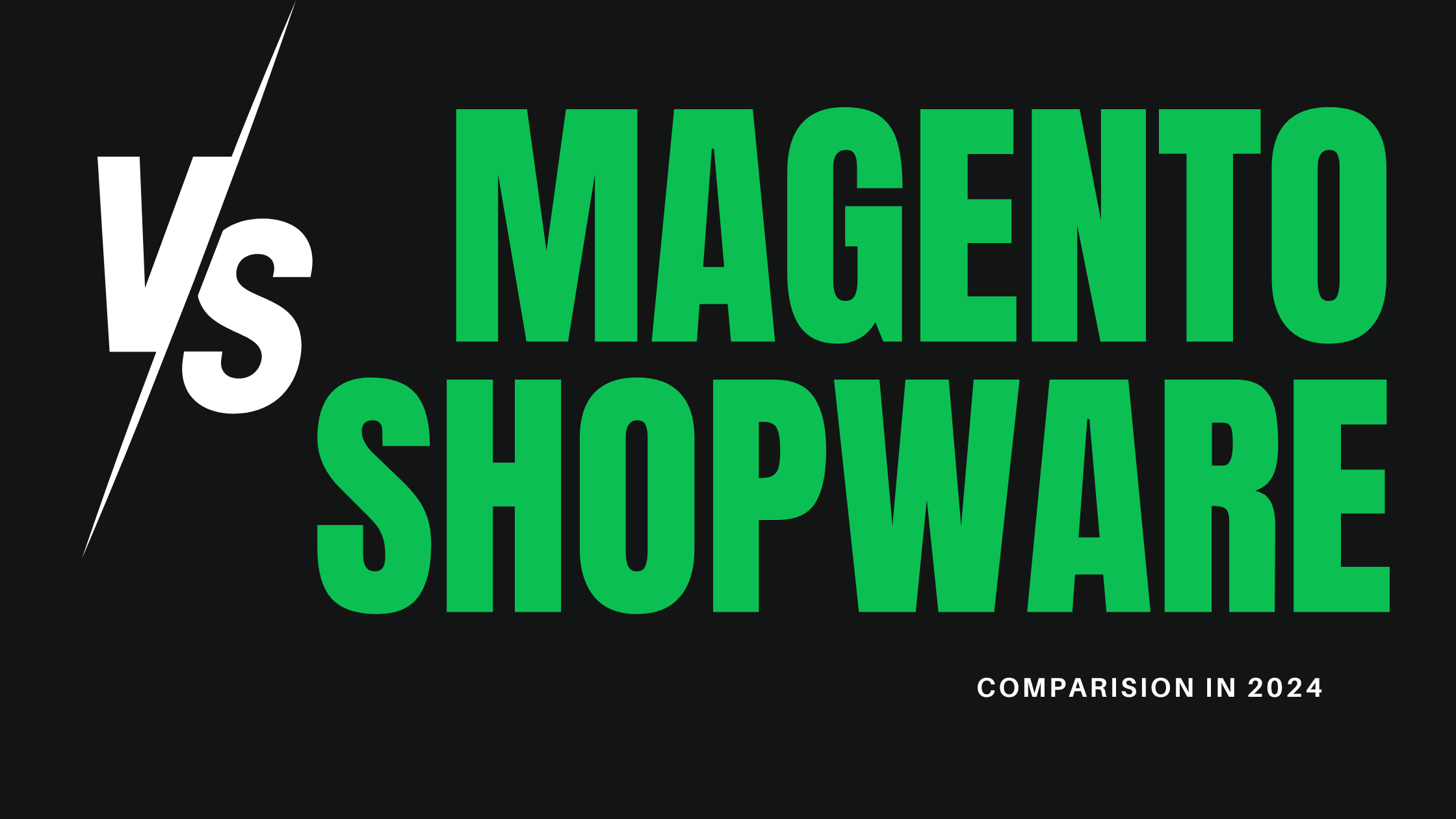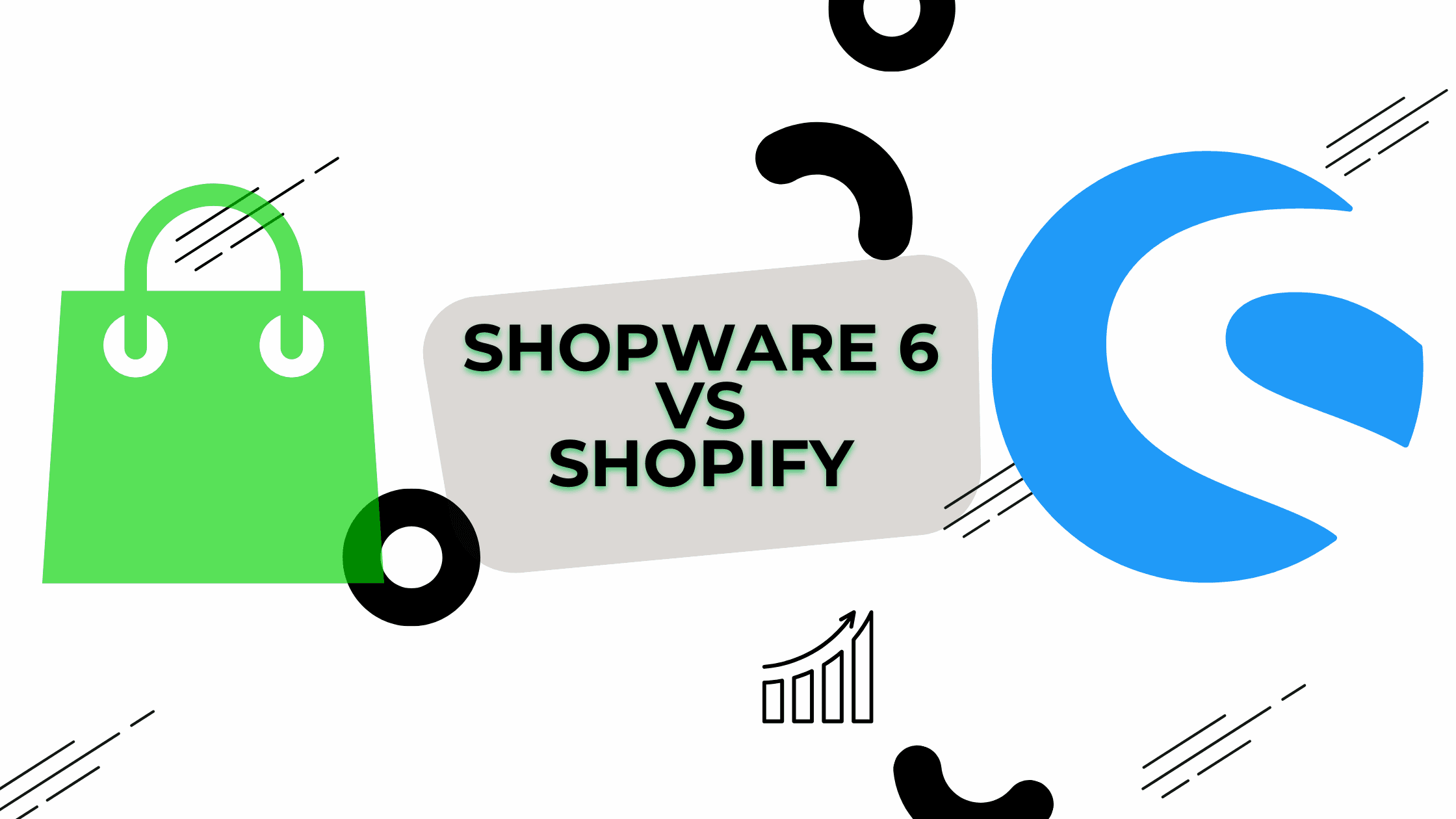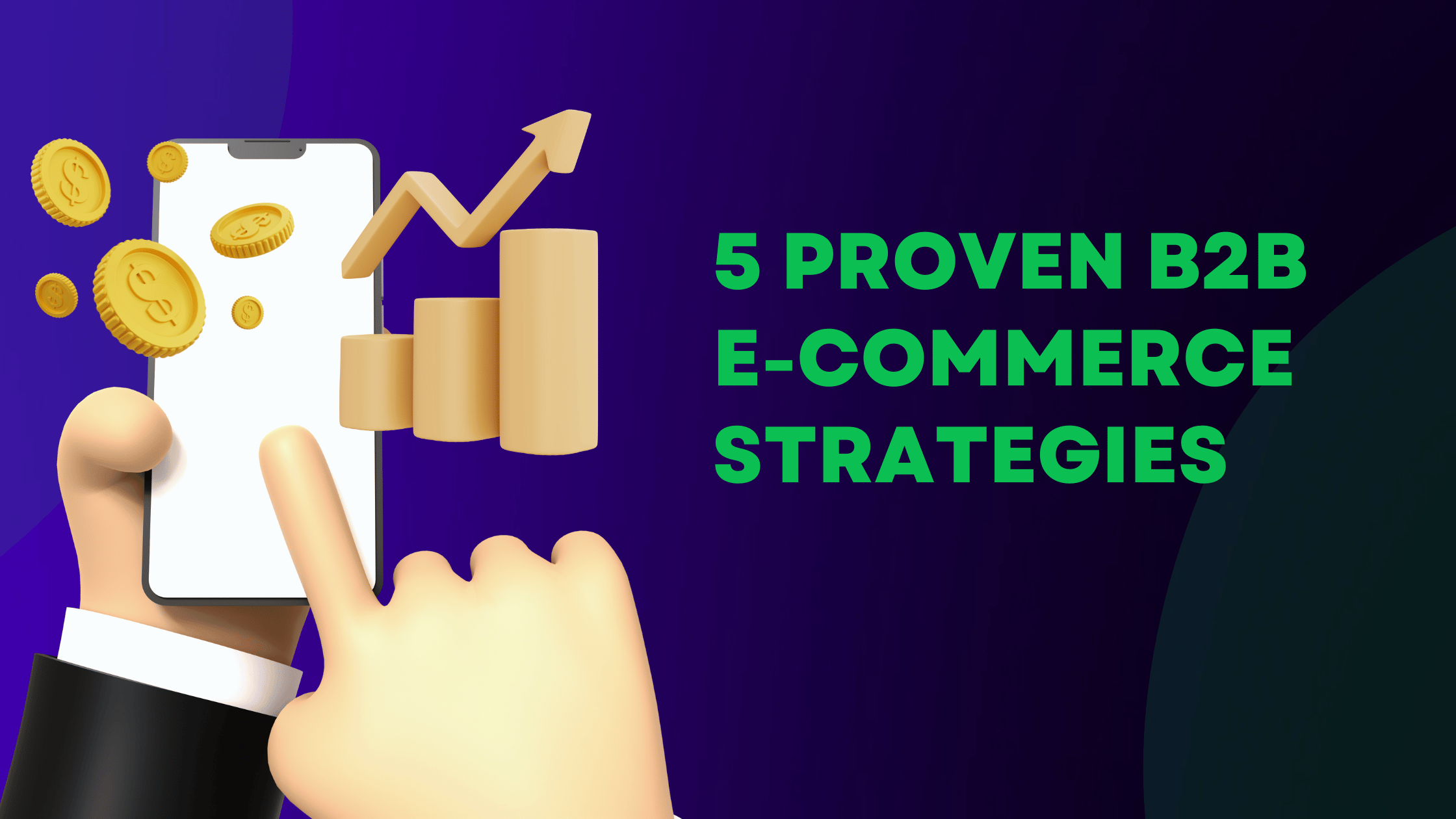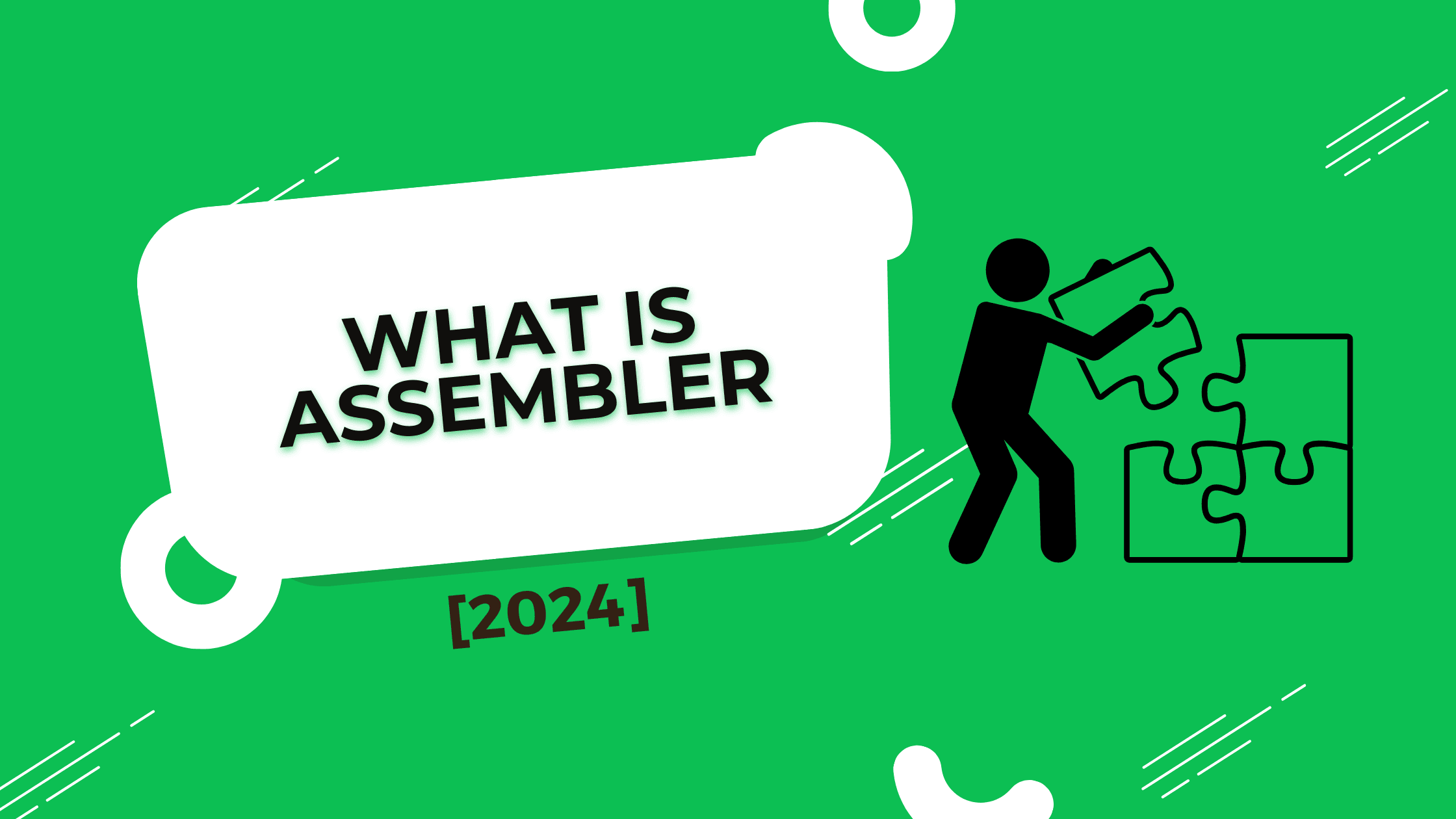Magento vs Shopware: Ultimate Guide in 2024
In the ever-evolving world of e-commerce, choosing the right platform for your online store is crucial. Two popular contenders in this space are Magento and Shopware. As we step into 2024, let’s dive deep into a comparison of Magento vs Shopware, exploring Magento 2 vs Shopware 6, to help you make an informed decision for your business.
Introduction to Magento and Shopware
Before we delve into the comparison of Shopware vs Magento, let’s briefly introduce these two powerful e-commerce platforms.
Magento: A Brief Overview
Magento, now known as Adobe Commerce, is a robust, open-source ecommerce platform known for its flexibility and scalability. Magento 2, the latest major version, offers enhanced performance and features compared to its predecessor, Magento 1. Magento also offers Magento Commerce Cloud, a fully managed cloud platform.
Shopware: An Introduction
Shopware 6, the latest version of Shopware, is an intuitive, open-source e-commerce solution that has been gaining popularity, especially in Europe. It’s known for its user-friendly interface and modern architecture.
Magento vs Shopware: Key Differences
When comparing Magento vs Shopware, several key differences emerge:
- Market Position: Magento is often favored by larger enterprises with complex needs, while Shopware is popular among small to medium-sized businesses.
- Ease of Use: Shopware is generally considered more user-friendly, while Magento offers more complexity and customization options.
- Scalability: Both platforms are scalable, but Magento is more scalable and often seen as more suitable for high-volume, complex operations.
- Community and Ecosystem: The Magento community is larger globally, while the Shopware community has a strong presence in Europe.
- B2B Capabilities: Magento 2 offers more advanced B2B features out of the box.
Magento 2 vs Shopware 6: A Detailed Comparison
Now, let’s compare Magento 2 and Shopware 6 across various aspects:
1. Ease of Use
Shopware 6: Known for its intuitive, user-friendly interface. It offers a drag-and-drop page builder, making it easier for non-technical users to create landing pages and manage content.
Magento 2: While powerful, it has a steeper learning curve. It offers much more complex features but requires more technical expertise to fully leverage its capabilities.
2. Customization and Flexibility
Magento 2: Offers extensive customization options. Its modular architecture allows for deep modifications, making it highly flexible for complex business requirements.
Shopware 6: Provides a good level of customization through its plugin system and theme engine. While not as extensive as Magento, it’s sufficient for most businesses.
3. Scalability
Magento 2: Magento excels in scalability, capable of handling large catalogs and high traffic volumes. It’s often the choice for enterprises with complex, multiple stores setups.
Shopware 6: While scalable, it’s typically more suited for small to medium-sized businesses. However, it can handle growth well within this range.
4. Performance
Magento 2: Known for its robust performance, especially when optimized correctly. However, it can be resource-intensive.
Shopware 6: Offers good performance out of the box and is generally less resource-intensive than Magento.
5. B2B Capabilities
Magento 2: Offers advanced B2B features in its Commerce edition, including company accounts, quote management, and negotiated pricing.
Shopware 6: While it offers some B2B features, it’s not as comprehensive as Magento in this area.
6. Extensions and Plugins
Magento 2: Has a vast Magento Marketplace with thousands of extensions, offering a wide range of additional functionalities.
Shopware 6: Has a growing plugin ecosystem, though not as extensive as Magento’s.
7. Community and Support
Magento 2: Has a large, global Magento community and extensive documentation. Adobe Commerce (paid version) offers enterprise-level support.
Shopware 6: Has a strong Shopware community, especially in Europe. Offers good documentation and support for its paid versions.
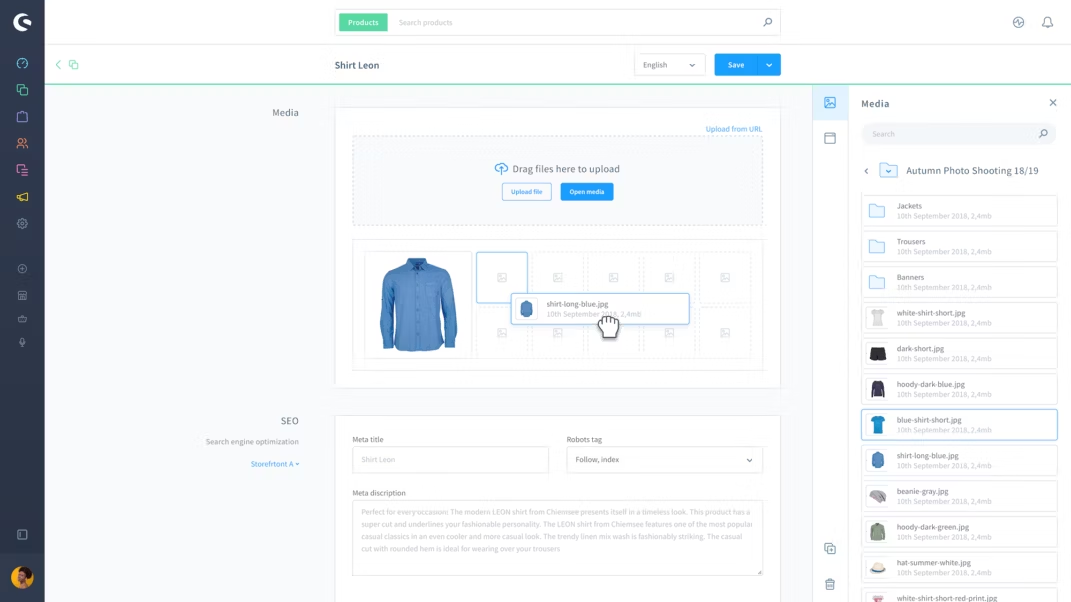
Choosing the Right Platform for Your Business
When deciding between Magento and Shopware, consider the following factors:
- Business Size and Complexity: Magento 2 is often better suited for larger, more complex operations, while Shopware 6 can be an excellent choice for small to medium-sized businesses.
- Technical Resources: If you have a team of experienced Magento developers, Magento’s flexibility can be a significant advantage. If you prefer a more user-friendly solution, Shopware might be the better choice.
- Budget: Consider both the initial implementation costs and ongoing maintenance. Magento can be more expensive to set up and maintain, especially for its Enterprise Edition (Adobe Commerce).
- Scalability Needs: If you anticipate rapid growth or have complex multi-store requirements, Magento might be the more future-proof option.
- B2B Requirements: If B2B features are crucial for your business, Magento 2 has an edge in this area.
- Geographic Focus: If your primary market is in Europe, Shopware’s strong presence there could be advantageous.
Magento 2 and Shopware 6: Pros and Cons
Let’s summarize the pros and cons of each platform:
Magento 2 Pros:
- Highly scalable and flexible
- Extensive customization options
- Large ecosystem of extensions
- Advanced B2B features
- Robust multi-store capabilities
Magento 2 Cons:
- Steeper learning curve
- Can be resource-intensive
- Higher development and maintenance costs
- Might be overkill for smaller businesses
Shopware 6 Pros:
- User-friendly interface
- Intuitive content management with Shopping Experiences
- Modern, API-first architecture
- Good performance out of the box
- Suitable for small to medium-sized businesses
Shopware 6 Cons:
- Smaller global community compared to Magento
- Fewer extensions available
- Less suitable for very large or complex operations
- B2B features not as advanced as Magento
Alternatives to Magento and Shopware
While Magento and Shopware are excellent choices, it’s worth mentioning other alternatives in the e-commerce space. One notable option is Shopify, which offers a user-friendly, hosted solution that’s particularly popular among small to medium-sized businesses.
Expert E-commerce Solutions
Choosing between Shopware and Magento, or any other e-commerce platform, can be challenging. That’s where expert guidance comes in handy. At Codelivery, we specialize in providing tailored e-commerce solutions to businesses of all sizes. Our team of experienced developers can help you navigate the complexities of choosing and implementing the right e-commerce platform for your specific business needs.
Conclusion: Making the Right Choice for Your E-commerce Solution
Choosing between Magento and Shopware ultimately depends on your specific business needs, resources, and future plans. Both platforms offer robust e-commerce solutions with their own strengths and considerations.
Magento 2 stands out for its scalability, extensive customization options, and advanced B2B features. It’s particularly well-suited for large enterprises with complex requirements and the resources to leverage its full potential.
Shopware 6, on the other hand, offers a more user-friendly approach with its intuitive interface and modern architecture. It’s an excellent choice for small to medium-sized businesses looking for a balance of features, ease of use, and cost-effectiveness.
As you make your decision, consider factors such as your business size, growth projections, the complexity of your e-commerce requirements, your in-house technical capabilities, and your budget for implementation and ongoing maintenance.
Remember, the right e-commerce platform is the one that not only meets your current needs but also supports your future growth. Whether you choose Magento 2, Shopware 6, or another solution, ensure it aligns with your long-term business strategy and provides the flexibility to adapt to the ever-changing e-commerce landscape.
In 2024 and beyond, both Magento and Shopware will continue to be strong contenders in the e-commerce space. By thoroughly evaluating your needs against the strengths of each platform, you can make an informed decision that sets your online business up for success.
